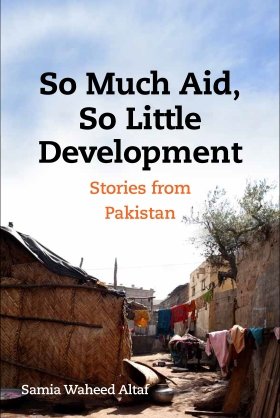So Much Aid, So Little Development: Stories from Pakistan


-
Pakistan has received more than $20 billion in external development assistance but has made little evident improvement in its social indicators. So Much Aid, So Little Development offers a fresh explanation for this outcome.
The author, Samia Altaf, a physician and public health specialist, follows one major initiative, the Social Action Program developed by the Pakistani government in 1992 and funded by the World Bank to the tune of hundreds of millions of dollars. In an engrossing account that reads almost like a novel, at times hilarious, at others heartbreaking, she tells the story of the program’s shortcomings through a series of eyewitness vignettes. She begins with planning meetings in Islamabad, moves through layer after layer of the Pakistani bureaucracy down to the village health trainee, and then returns to Washington for the evaluation. At every stage, she finds skewed incentives, misplaced priorities, and inappropriate designs diverting the project from its original intentions and ambitions. In the process, Altaf introduces into the development conversation the human dimension that most frameworks have neglected to their detriment.
Samia Altaf, a physician and public health specialist, was formerly the senior advisor to the Office of Health in the USAID Mission in Islamabad, Pakistan. She was the 2007 Pakistan Scholar at the Woodrow Wilson Center.
Author
Samia AltafFormer Pakistan Scholar;
Former Acting Director and Senior Advisor, Office of Health, USAID Mission in Islamabad, PakistanIndo-Pacific Program
The Indo-Pacific Program promotes policy debate and intellectual discussions on US interests in the Asia-Pacific as well as political, economic, security, and social issues relating to the world’s most populous and economically dynamic region. Read more
Browse Insights & AnalysisExplore More
Browse Insights & Analysis
Understanding Trade Promotion Authority (TPA): Implications for US Trade
Posted date/time:
The Innovative Landscape of African Sovereign Wealth Funds
Posted date/time:
A Case for a North American Common Tariff
Posted date/time:

